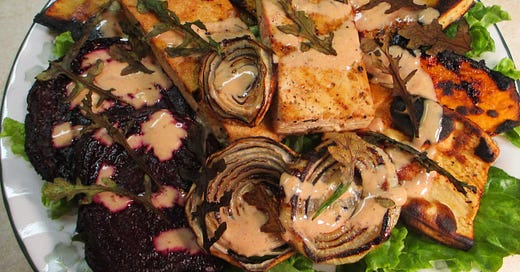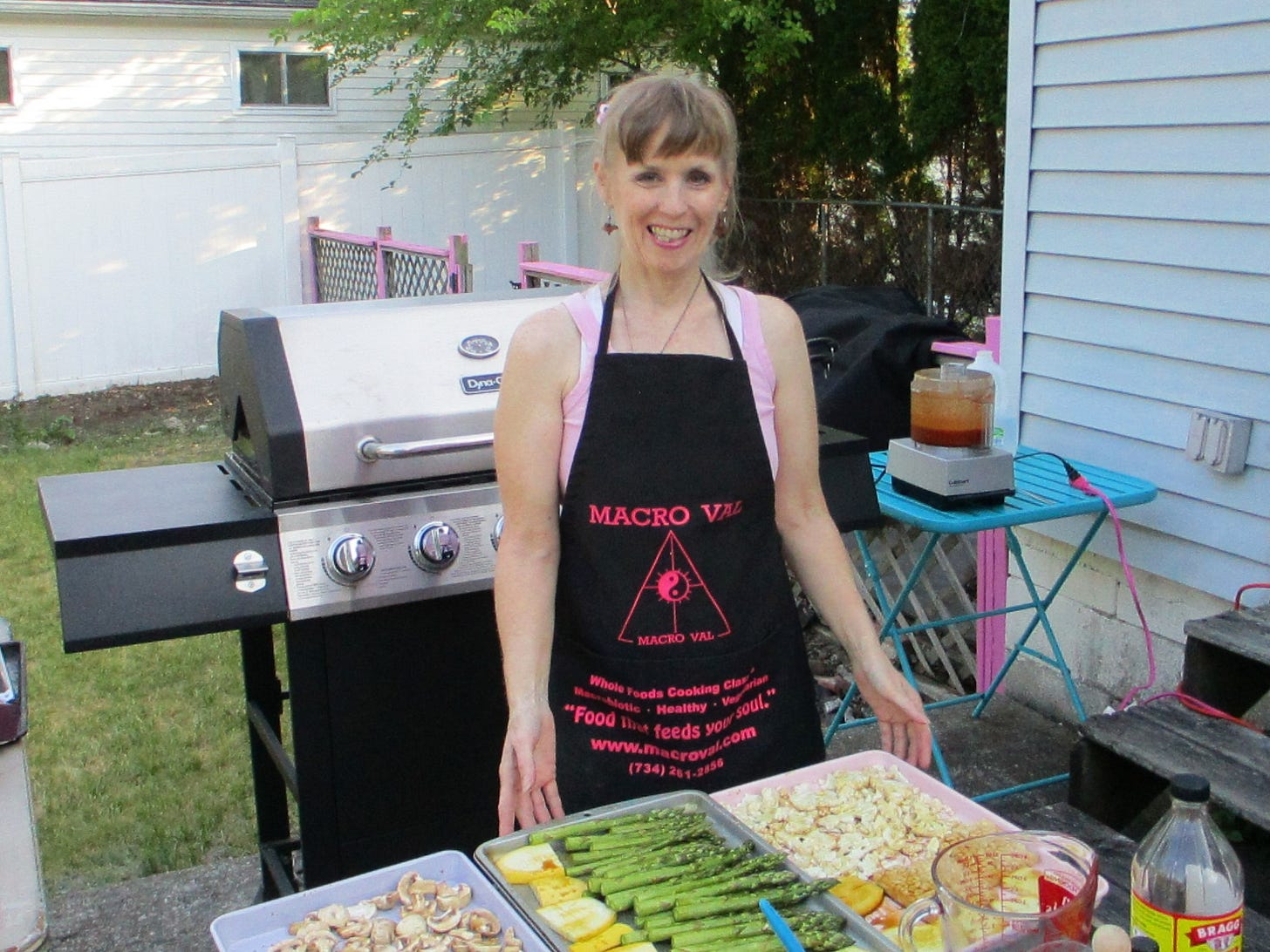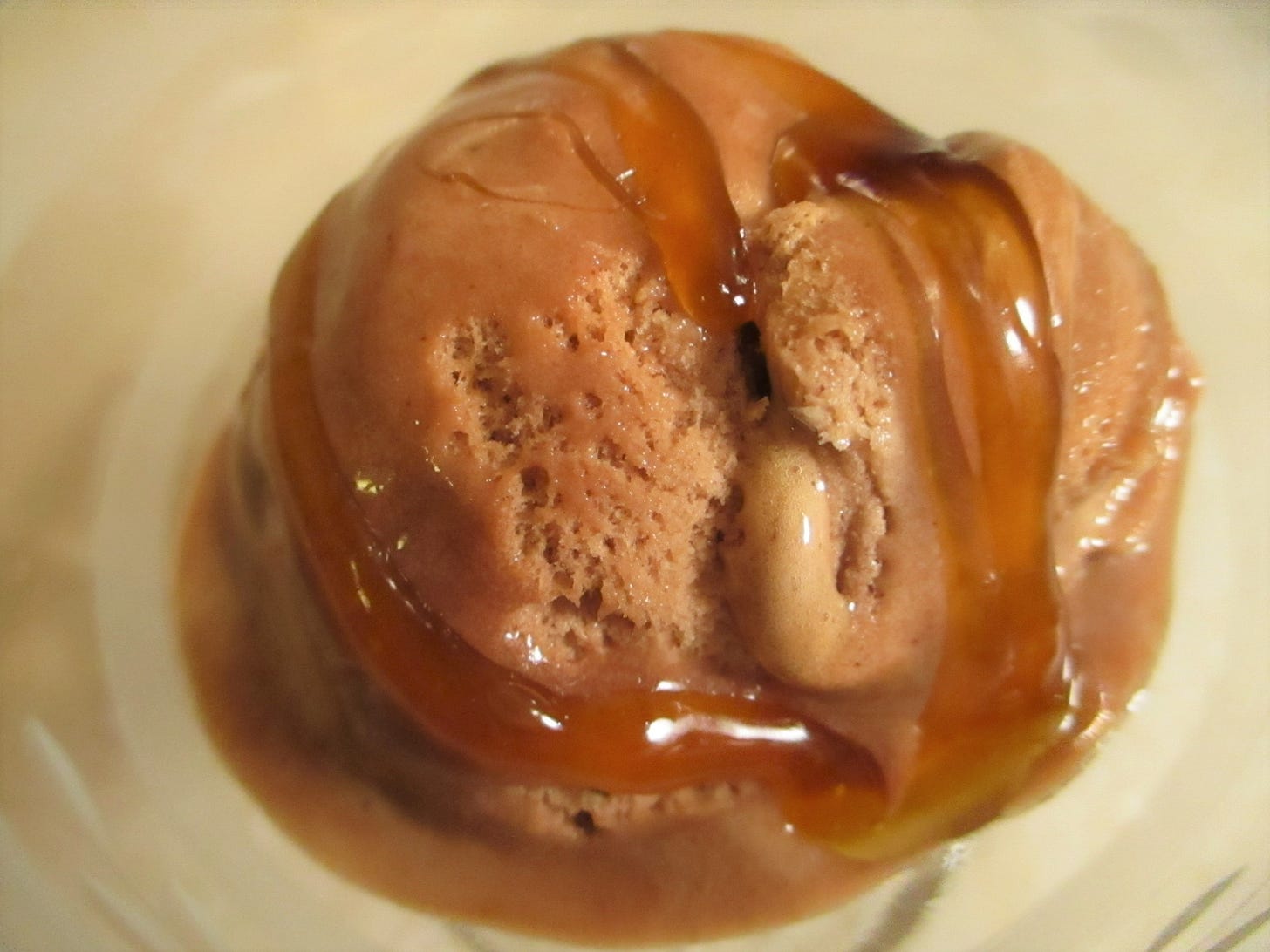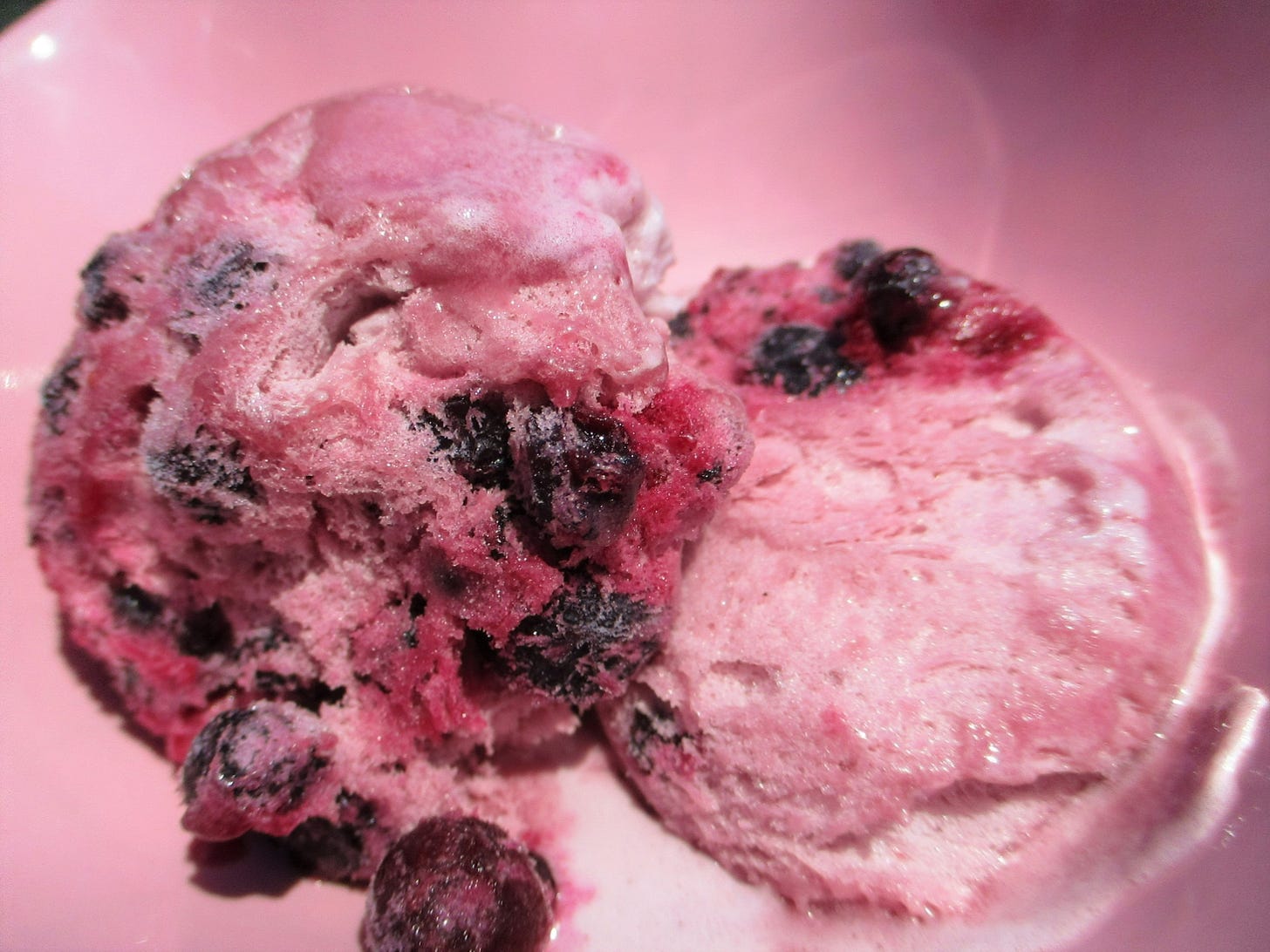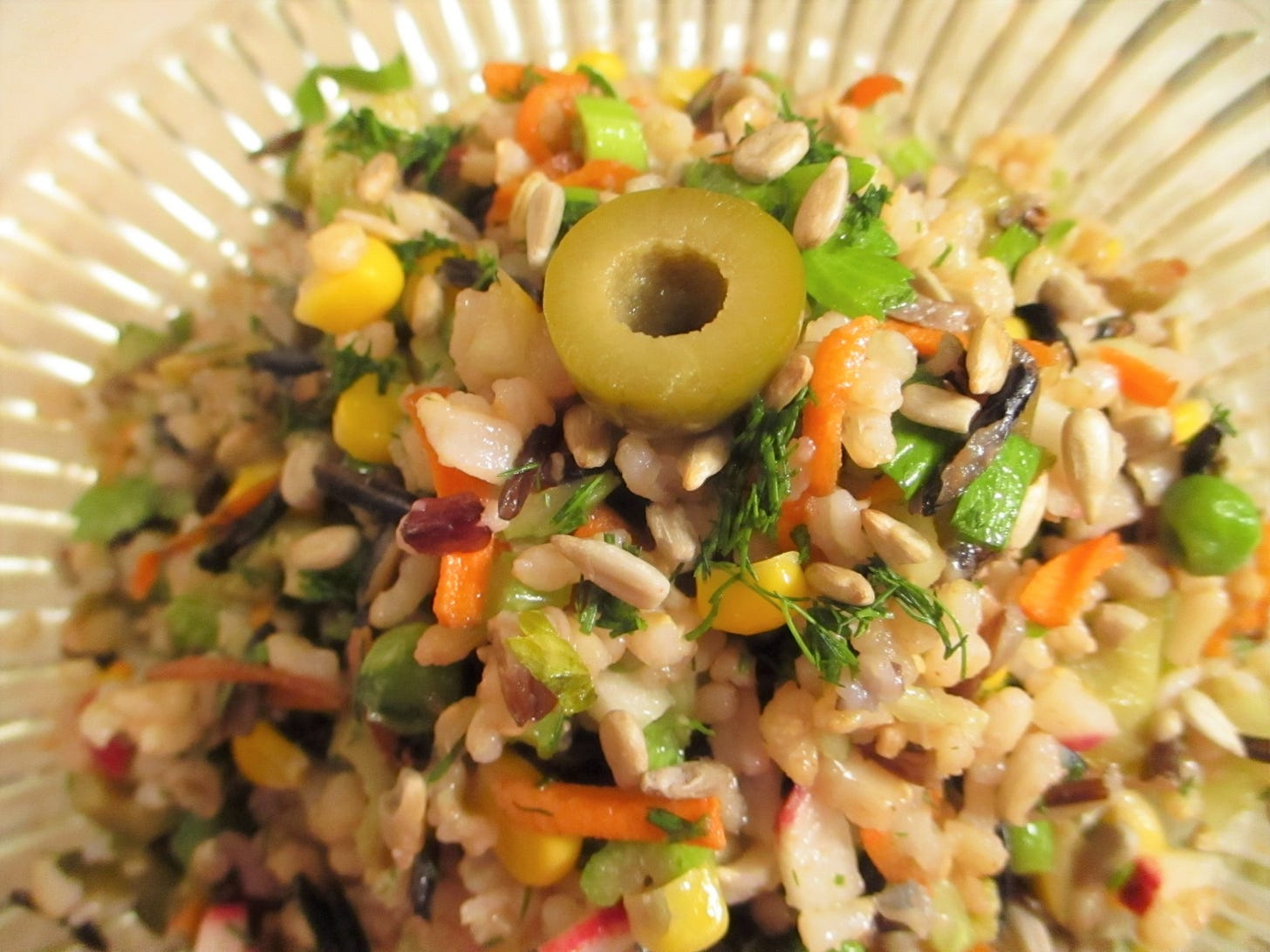Organic, Regenerative, Biodynamic and Veganic
What is the difference so You can make a smart choice.
We all want to eat the best food possible. If we could all have a garden and grown our own food, that would be the freshest and best food we could consume. However not everyone has the ability to have a garden. For over 26 years I have been teaching to buy organic. It is very important that we support the companies who do produce the best quality food. And now there is also regenerative, biodynamic and veganic farming that is producing our food. What is the difference between them? I thought I would share some information to help educate about this topic.
Regenerative:
In the world of organic farming, regenerative leads the pack in its holistic view of agriculture. Biodynamic farming is a type of regenerative practice, which is defined as a means to help reverse climate change by “rebuilding soil organic matter and restoring degraded soil biodiversity.”
No tillage/minimum tillage: Instead of shoveling, raking, and hoeing (which may decrease soil health), this policy helps protect the soil and increase its ability to remove carbon dioxide from the atmosphere.
Restoring soil and plant microbiome: This is achieved by planting cover crops, using compost and animal manure, and working crop rotations into the annual plantings.
Building ecosystem diversity: There are a handful of ways a regenerative farm can support the ecosystem, including composting and creating friendly spaces for pollinators to thrive.
Well-managed grazing practices: Allowing animals to graze openly and roam freely helps contribute to insect diversity and soil biodiversity.
For more information: https://thrivemarket.com/blog/regenerative-vs-biodynamic-vs-organic
Biodynamic:
Biodynamic agriculture is a form of regenerative agriculture pioneered by Dr. Rudolf Steiner in the 1920s. Steiner believed a harmonious approach to farming would help support plants and animals, while creating nutrient-dense food and emphasizing self-sustainability.
Biological diversity: Biodynamic farms are required to have a minimum of 10 percent of their land serve as a biodiversity reserve, which helps support wildlife and endangered habitats.
Focus on fertility: Fertility on the farm is defined as the ability of soil to sustain plant growth. To boost vitality, biodynamic farms use a variety of practices such as green manure, rotational grazing, and crop rotation.
Gentle pest control: Instead of using pesticides, biodynamic farmers focus on learning pest life cycles, then timing their plantings accordingly. To help manage weeds, mulching, grazing, and crop canopies can all make the difference.
H2O conservation: Water conservation is a big part of a biodynamic farm, which often uses solar pumps and wind pumps, protects natural wetlands, and installs efficient irrigation systems.
For more information: https://thrivemarket.com/blog/regenerative-vs-biodynamic-vs-organic
Veganic Farming:
Veganic farming, also known as stock-free farming, has emerged as a promising solution to address the pressing challenges of sustainability and animal welfare in modern agriculture.
This innovative approach combines the principles of veganism and organic farming to create a system that eliminates animal exploitation and promotes ecological balance.
By exclusively utilizing plant-based inputs and emphasizing regenerative practices, veganic farming offers a sustainable and ethical alternative to conventional commercial farming methods.
Crop Rotation: Veganic farmers practice crop rotation, where different plant species are grown in a sequence over several seasons. This helps disrupt pest life cycles, reduces pest build-up, and prevents the spread of diseases. Crop rotation also balances nutrient demands and promotes healthier soil.
Companion Planting: Veganic farmers employ companion planting, which involves growing compatible plant species together. Some plants naturally repel pests or attract beneficial insects that prey on pests, helping to control populations naturally. For example, planting marigolds alongside vegetables can deter certain pests.
Physical Barriers: Protective physical barriers, such as row covers, netting, or insect-proof mesh, can be used to prevent pests from accessing crops while still allowing air and light to penetrate. This method is commonly used to protect plants from insect pests like aphids or caterpillars.
Beneficial Insects: Veganic farmers encourage the presence of beneficial insects, also known as natural predators or parasitoids, to control pest populations. Ladybugs, lacewings, and praying mantises are examples of insects that feed on harmful pests. Attracting these beneficial insects can be achieved by providing suitable habitats, such as flowering plants or insectary strips.
Cultural Practices: Good farming practices, such as proper irrigation, adequate spacing between plants, and timely removal of diseased plant material or weeds, help maintain plant health and reduce pest pressure. Keeping a clean and well-maintained growing environment minimizes potential pest habitats.
For more information: https://www.theplantway.com/veganic-farming/
Thank you for reading, liking, commenting and subscribing to my blog. Please consider becoming a paid subscriber to support my work.
If you are reading my blog, do you know who I am or my background?
Bio: I have been in the food industry my whole adult life.
Chef Valerie Wilson, also known as Chef Val, has been in the food industry since 1985. Having lived a vegan, Whole Foods, macrobiotic lifestyle since 1993, she started teaching cooking classes in 1997 and still teaches in South-Eastern Michigan. Valerie offers lifestyle counseling, personal chef services, writes for local magazines and hosts her own radio show, REAL FOOD with Chef Val. She has a subscription video Patreon group, Chef Val’s Whole and Healthy Cooking. She is the author of six cookbooks, her most recent: Simply Healthy Scrumptious Desserts.
Get in the Kitchen and Cook Healthy!
Upcoming Cooking Classes:
What is better than Ice Cream on a hot summer day? Ice Cream with NO FAT, NO REFINED SUGAR and almost NO CALORIES!
Vegan Aquafaba Ice Cream Cooking Class
Wed. July 19 - 6:30 to 7:30 PM (ET)Virtual - $25.00
Two flavors: Chocolate with Smoky Sea Salt Caramel and Blueberry (any fruit can be substituted). This is the best vegan ice cream with no fat and no calories all made with bean water. The only sweetener used is brown rice syrup in this ice cream.
Chef Val's Wild Rice Fresh Dill and Green Olive Salad Cooking Class
Wed. July 26 - 6:30 to 7:30 PM (ET) - Virtual - $25.00
Sign up: https://www.macroval.com/cookingclasses.htm
Whole Grains for a whole compete meal. Wild rice and brown rice make this salad light and fresh dill from the garden is just the thing to give the salad flavor. Plus Green Olives to add that layer of flavor your tastes bud will love. In the class you will learn all the health benefits of the meal. The best way to learn about how to live a whole food, healthy, vegan lifestyle is to attend a cooking class.
Do you need help healing your body? I can help.
I have been counseling people for 20 years. I have helped people overcome: arthritis, prostate cancer, breast cancer, lung cancer, Meniere’s disease, digestive problems, lack of cartilage in the knees and more. The body will heal itself given the proper food to create a healing environment.
And now I AM GETTING STRAIGHT TO THE HEART OF THE MATTER! I have discovered a way to help your body reactivate its own stem cells to start healing itself! This is the most effective, powerful way for your body to heal itself! Watch the two short videos on this website then CONTACT ME!
